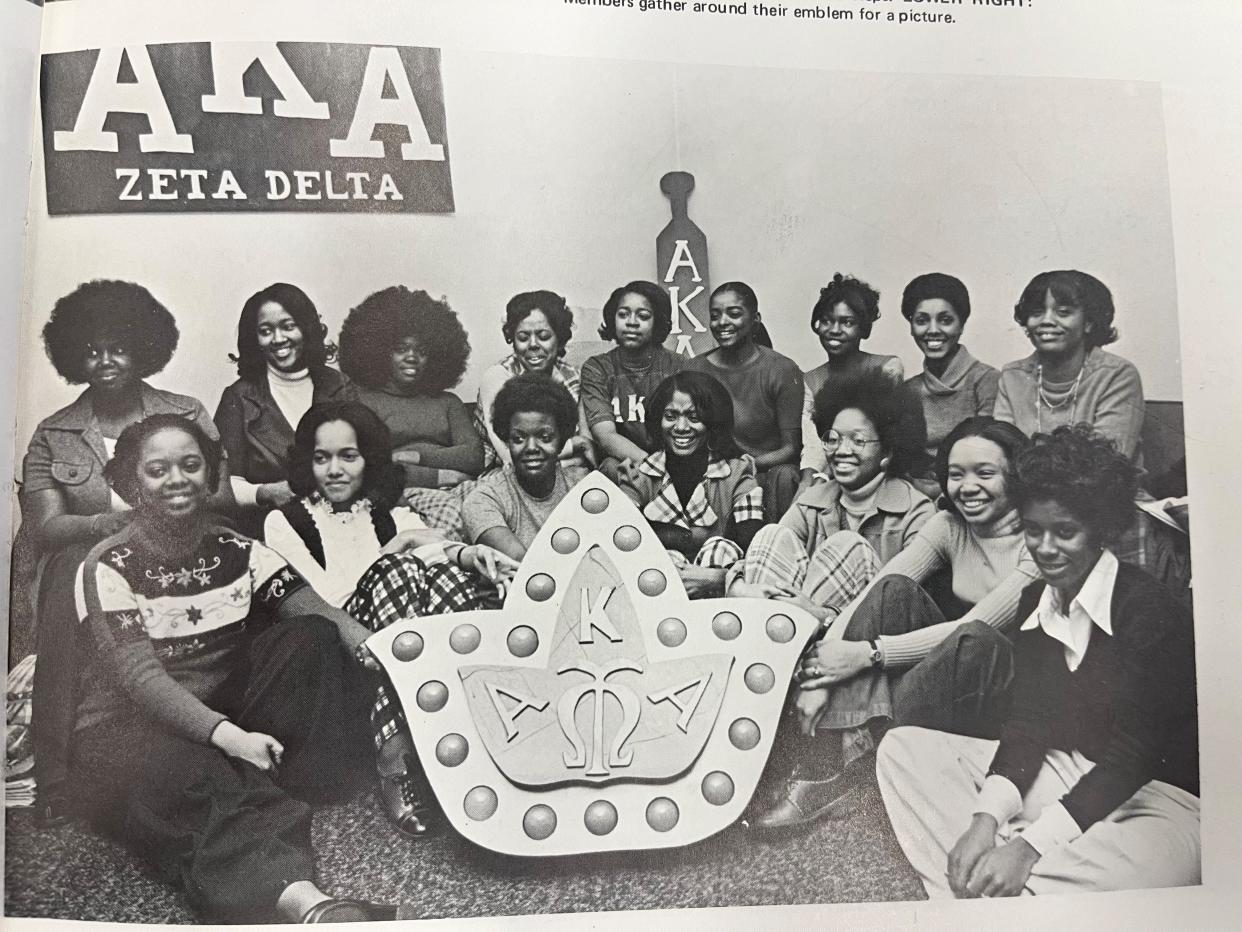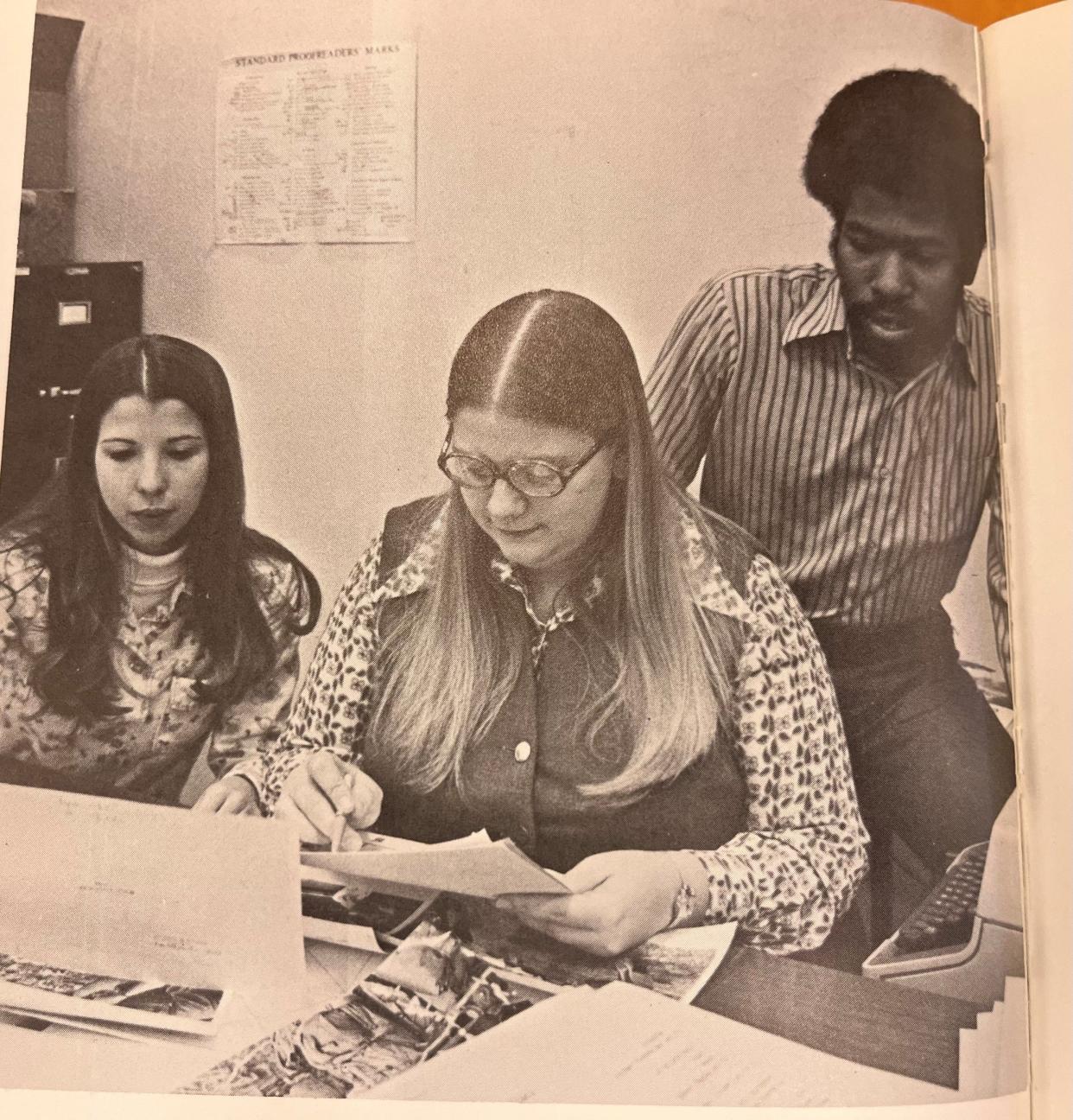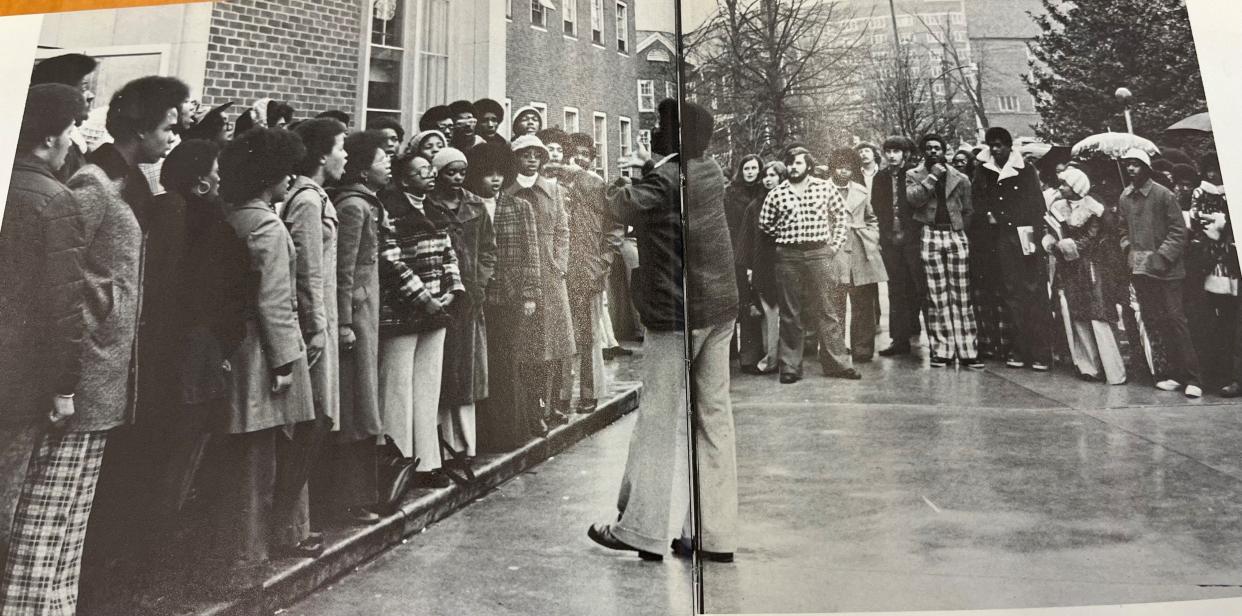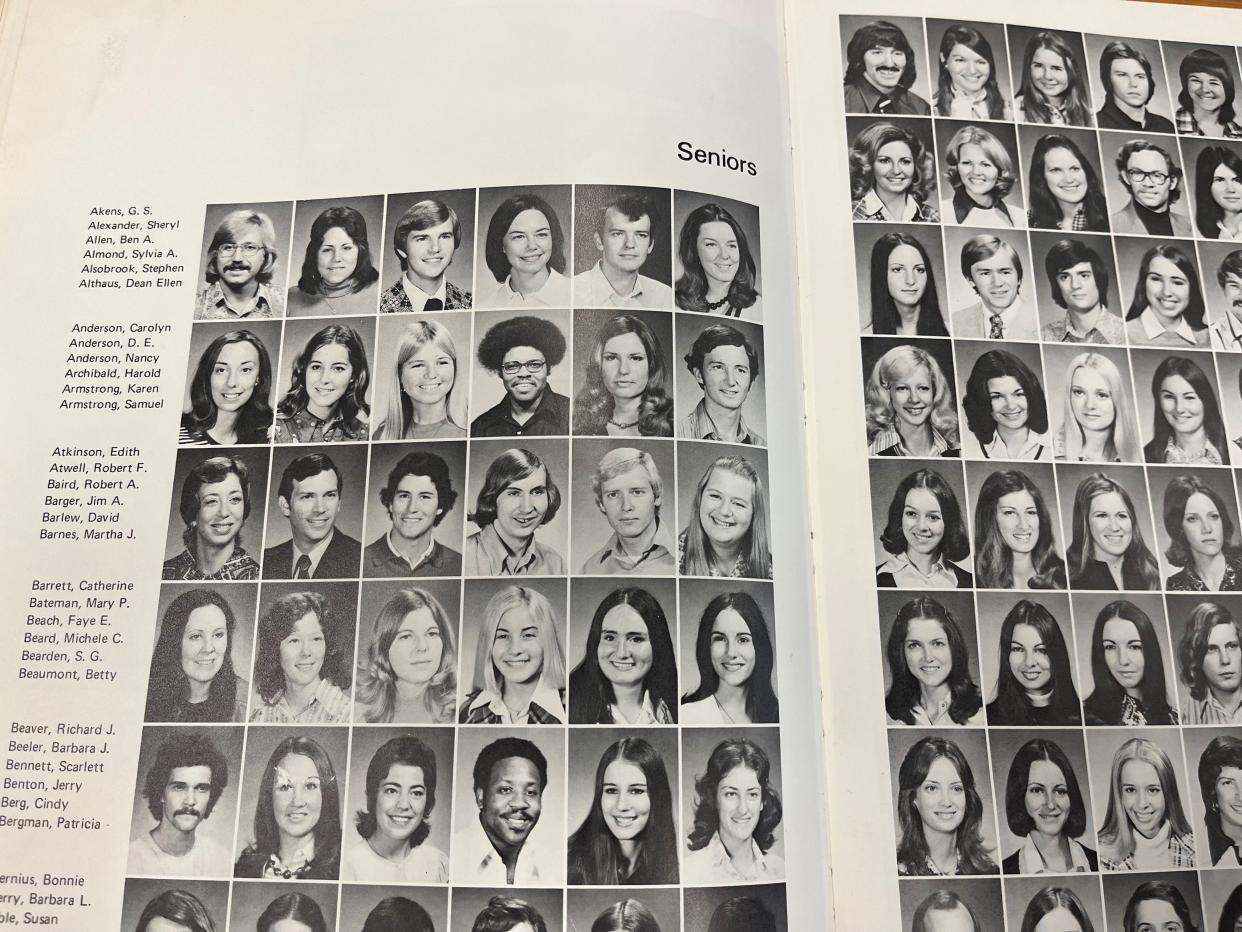Before the King holiday, UT students 50 years ago marked civil rights leader's birthday
Fifty years ago, the University of Tennessee at Knoxville was enjoying a fruitful school year that is most remembered today for the streaking craze that briefly hit the campus and made national headlines in late February and early March of 1974.
But a few weeks before that, some UT students were involved in more serious pursuits, including observing the Jan. 15 birthday of slain civil rights leader Dr. Martin Luther King Jr. While the third Monday in January would not become a federal holiday until 1986 and not a full paid holiday by all the states until a few years later, some UT students and staff were already thoughtfully observing the actual birthday.
As a writeup in the 1974 UT yearbook, the Volunteer, stated, “On that day, Black students at UT took time out to honor the civil rights leader. Despite the rain, the Liberation Concert Choir sang as many others participated in ceremonies. A plaque was planted designating the spot where a dawn redwood was to be planted in Dr. King’s honor.”
The exact spot of where the plaque was placed and the tree was to be planted was not obvious in the yearbook.

A photo shows a handful of white students also taking part in the Martin Luther King activities.
It was not even a decade or so since Black students had begun attending UT in more than minuscule numbers. While many of those early students would likely have plenty of anecdotes of their time, the yearbook full of photos tells plenty, too.
Other enriching activities for the Black student community took place throughout the year. As part of Black History Week in February, for example, singer and dancer Camille Yarbrough performed, student poetry readings were held, a photography exhibit took place, and a gospel concert by the Liberation Concert Choir was staged.
Among other events throughout the year were poetry readings by noted Black poets Gwendolyn Brooks and Nikki Giovanni. That was along with the other offerings noted in the yearbook like performances by musicians Elton John, Bette Midler and John Hartford.

A Black Arts Festival was also held in May. It and the Black History Week activities had been organized by a student group called the Afro-American Liberation Force. That group and others were also trying to revamp the Black studies program at UT and to make it pertain more to Black students and Black problems, the yearbook said.
A glance through the senior section of the UT yearbook also shows the slow growth of Black students into the larger UT student community.
In sports, Mike Jackson and Rodney Woods were the only two Black members of about 14 on the Vols varsity men’s basketball team. A football program from the 1973 season has 81 players pictured, seven of them Black. Black athletes also were increasing in number on the men’s track and field team.

Although slow, changes were coming to help the university more accurately reflect the population makeup of the state. For example, 16 Black women students were pictured as members of Alpha Kappa Alpha sorority, with their own suite in the Panhellenic Building.
Also, two of the 36 Vol Corps campus hosts and hostesses were Black. And one Black student, Reginald Roberts, was the features editor of the Volunteer yearbook.
The school was evidently making a concerted effort in various areas to better reflect the world in a typically conservative Southern state university. As the yearbook’s writeup on the student newspaper said, “The Daily Beacon … provided a variety of viewpoints on its editorial pages to reflect the diversity of the campus community.” It pointed out that the paper even covered such taboo issues of that time as “homosexuality.”

This article originally appeared on Knoxville News Sentinel: Before King holiday Black University of Tennessee students marked birthday
